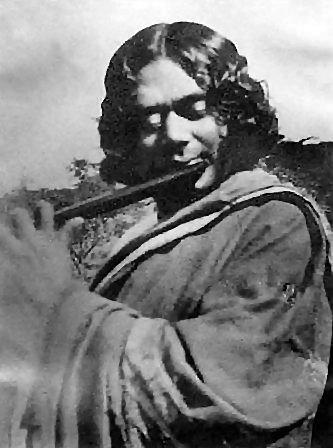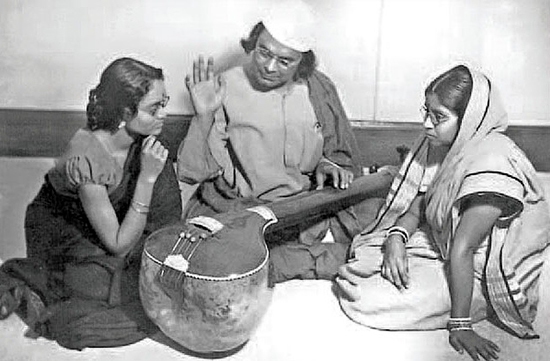Nazrul Geeti on:
[Wikipedia]
[Google]
[Amazon]
Nazrul Sangeet (), also Nazrul Geeti (; ), refers to the songs written and composed by

 Nazrul Geeti has recently been translated and recorded in Oriya (an Indian language) in the form of a studio album.
Nazrul Geeti has recently been translated and recorded in Oriya (an Indian language) in the form of a studio album.
Kazi Nazrul Islam
Kazi Nazrul Islam (24 May 1899 – 29 August 1976) was a Bengalis, Bengali poet, short story writer, journalist, lyricist and musician. He is the national poet of Bangladesh. Nazrul produced a List of works by Kazi Nazrul Islam, large body of ...
, who is the national poet of Bangladesh. Nazrul Geeti incorporate revolutionary notions as well as more spiritual, philosophical and romantic themes. Nazrul wrote and composed nearly 4,000 songs (including gramophone records), which are widely popular in Bangladesh
Bangladesh, officially the People's Republic of Bangladesh, is a country in South Asia. It is the List of countries and dependencies by population, eighth-most populous country in the world and among the List of countries and dependencies by ...
and India
India, officially the Republic of India, is a country in South Asia. It is the List of countries and dependencies by area, seventh-largest country by area; the List of countries by population (United Nations), most populous country since ...
. Some of the most notable Nazrul Sangeet include '' Notuner Gaan'', the national marching song of Bangladesh and '' O Mon Romzaner Oi Rozar Sheshe,'' a Bengali Islamic song on the festival of the Bengali celebration of Chand Raat and Eid-ul-Fitr
Eid al-Fitr () is the first of the two main festivals in Islam, the other being Eid al-Adha. It falls on the first day of Shawwal, the tenth month of the Islamic calendar. Eid al-Fitr is celebrated by Muslims worldwide because it marks the ...
.
Background
Nazrul showed the symptoms of keen poetic and musical talent at a young age and started writing songs when he was a member of a Leto group (Folk Musical Group). Following Kazi Bazle Karim, his uncle and a leader of a Leto group, he became an expert in composing songs and setting them to tunes. Joining the Leto group enhanced his musical career and put a significant impact on shaping his future musical life. At a very young age he was excelled in composing songs in different languages, apart from the Bengali language. He met Satish Kanjilal, a teacher of Searsol School who had an interest in classical music and some mastery over it. Observing Nazrul's irresistible inclination to music, Mr. Kanjilal imparted him some lessons on classical music. Later Nazrul widened his knowledge on music when he was serving as a Havilder inKarachi
Karachi is the capital city of the Administrative units of Pakistan, province of Sindh, Pakistan. It is the List of cities in Pakistan by population, largest city in Pakistan and 12th List of largest cities, largest in the world, with a popul ...
Barrack under Bengal Regiment. He learned a great deal of Persian language
Persian ( ), also known by its endonym and exonym, endonym Farsi (, Fārsī ), is a Western Iranian languages, Western Iranian language belonging to the Iranian languages, Iranian branch of the Indo-Iranian languages, Indo-Iranian subdivision ...
, literature, and music with the help of a religious teacher from Punjab
Punjab (; ; also romanised as Panjāb or Panj-Āb) is a geopolitical, cultural, and historical region in South Asia. It is located in the northwestern part of the Indian subcontinent, comprising areas of modern-day eastern Pakistan and no ...
attached with the regiment.
Nazrul Islam's musical style
Revolutionary mass music
The mass music and poems of Kazi Nazrul Islam have been widely used during the Indian Independence Movement and Bangladesh Liberation War. The music is highly motivational and revolutionary in nature with strong and powerful words and captivating tunes. It talks about the extremities of everything. The lyrics of those songs are provoking, as they talk against conservatism and about life on a broader parameter of philosophy and spirituality. The beauty of Nazrul's mass music lies in the freedom of its expression, which also drew immense criticism. However, those who understood its philosophy praised the courage and straightforwardness.
Ghazal
Nazrul's acquaintance with the tradition of PersianGhazal
''Ghazal'' is a form of amatory poem or ode, originating in Arabic poetry that often deals with topics of spiritual and romantic love. It may be understood as a poetic expression of both the pain of loss, or separation from the beloved, and t ...
s, a form of love songs, was very significant in the sense that it paved the base of his successful efforts in composing Bengali Ghazals which he undertook by 1927–28. Bengali Ghazal is, it can be mentioned outright, an innovation by Kazi Nazrul Islam alone. It served as the first mass-level introduction of Islam into the mainstream tradition of Bengali music
Bengali music () comprises a long tradition of religious and secular song-writing over a period of almost a millennium. Composed with lyrics in the Bengali language, Bengali music spans a wide variety of styles.
History
The earliest mus ...
.
Historical influence
Nazrul used his music as a major way of disseminating his revolutionary notions, mainly by the use of strong words and powerful, but catchy, tunes. Among the revolutionary songs, ''Karar Oi Louho Kopat'' (Prison-doors of Steel) is best known and has been used in several movies, especially those made during the pre-independence period of Bangladesh. Nazrul Geeti has recently been translated and recorded in Oriya (an Indian language) in the form of a studio album.
Nazrul Geeti has recently been translated and recorded in Oriya (an Indian language) in the form of a studio album.
Notable songs
* Dolan Chapa (name of a faintly fragrant monsoon flower), poems and songs, 1923 * Bisher Bashi (The Poison Flute), poems and songs, 1924 * Bhangar Gan (The Song of Destruction), songs and poems, 1924 proscribe in 1924 * Chhayanat (The Raga of Chhayanat), poems and songs, 1925 * Chittanama (On Chittaranjan), poems and songs, 1925 * Samyabadi (The Proclaimer of Equality), poems and songs, 1926 * Puber Hawa (The Eastern Wind), poems and songs, 1926 * Sarbahara (The Proletariat), poems and songs, 1926 * Sindhu Hindol (The Undulation of the Sea), poems and songs, 1927 * Jinjir (Chain), poems and songs, 1928 * Pralaya Shikha (Doomsday Flame), poems and songs, 1930 proscribed in 1930 * Gumaite Dao Sranto Rabire (Let the tired Sun(Rabindranath) sleep), poems and songs, 1941. * Shesh Saogat (The Last Offerings), poems and songs, 1958 * Notuner Gaan (The Song of Youth), 1928, National March ofBangladesh
Bangladesh, officially the People's Republic of Bangladesh, is a country in South Asia. It is the List of countries and dependencies by population, eighth-most populous country in the world and among the List of countries and dependencies by ...
* O Mon Romzaner Oi Rozar Sheshe Elo Khushir Eid, composed for Abbasuddin Ahmed, 1932
* Tribhubaner Priya Muhammad (Muhammad the beloved of three dimensions), composed for Abbasuddin Ahmed, 1935
Notable singers of ''Nazrul Sangeet''
* Abbasuddin Ahmed * Shusmita Anis * Ferdous Ara * Firoza Begum *Asha Bhosle
Asha Bhosle (; ; born 8 September 1933) is an Indian playback singer, entrepreneur, actress and television personality who predominantly works in Indian cinema. Known for her versatility, she has been described in the media as one of the ...
* S. D. Burman
* Ajoy Chakrabarty
* Niaz Mohammad Chowdhury
* Alaka Das
* Chittaranjan Das
Chittaranjan Das (5 November 1870 – 16 June 1925), popularly called ''Deshbandhu'' (friend of the country), was a Bengali freedom fighter, political activist and lawyer during the Indian Independence Movement and the political guru of Indi ...
* Manas Kumar Das
* Sudhin Das
* Tapas Kumar Das
* Kamal Dasgupta
* Kanan Devi
* K C Dey
* Manna Dey
Prabodh Chandra Dey (; 1 May 1919 − 24 October 2013), known by his stage name Manna Dey, was an Indian playback singer, music director, and musician. He had a classical music background, being part of the Bhendibazaar gharana, Bhendibazaar Gh ...
* Purabi Dutta
* Anup Ghoshal
* Anup Jalota
* Nashid Kamal
Nashid Kamal (born 19 March 1958) is a Bangladeshi vocalist, writer and professor of demography. She is the eldest granddaughter of Bengalis, Bengali folk singer Abbasuddin Ahmed. Kamal is widely regarded as a Nazrul exponent.Sadya Afreen Mallick
* Namrata Mohanty
* Manabendra Mukhopadhyay
* Sandhya Mukhopadhyay
*
Mohammed Rafi
Mohammed Rafi (24 December 1924 – 31 July 1980) was an Indian playback singer. He is considered to have been one of the greatest and most influential singers of the Indian subcontinent. Rafi was notable for his versatility and range of voice ...
* Ferdausi Rahman
* Juthika Roy
* Haimanti Shukla
* Madhuri Chattopadhyay
* Ila Basu
* Shaheen Samad
* Kumar Sanu
Kedarnath Bhattacharya (born 20 October 1957), professionally known as Kumar Sanu, is a leading Indian playback singer who primarily sings in Hindi film songs. He is widely regarded as the Melody King of Bollywood. He holds the record for winn ...
* Indrani Sen
* Anuradha Paudwal
Anuradha Paudwal (born 27 October 1954) is an Indian playback singer and politician who works predominantly in Hindi cinema and Odia cinema. She has been described in media as one of the most prominent Bhajan singers and also as one of the m ...
* Nilufar Yasmin
* Ila Ghosh
* Angur Bala devi
* Indu Bala
* Shanta Apte
* Jnanendra Prasad Goswami
References
{{DEFAULTSORT:Nazrul Geeti Bangladeshi literature Bengali music Music of Bangladesh Indian literature Culture of Kolkata Culture of Bangladesh Music of India Culture of India Kazi Nazrul Islam Music of Bengal Indian styles of music